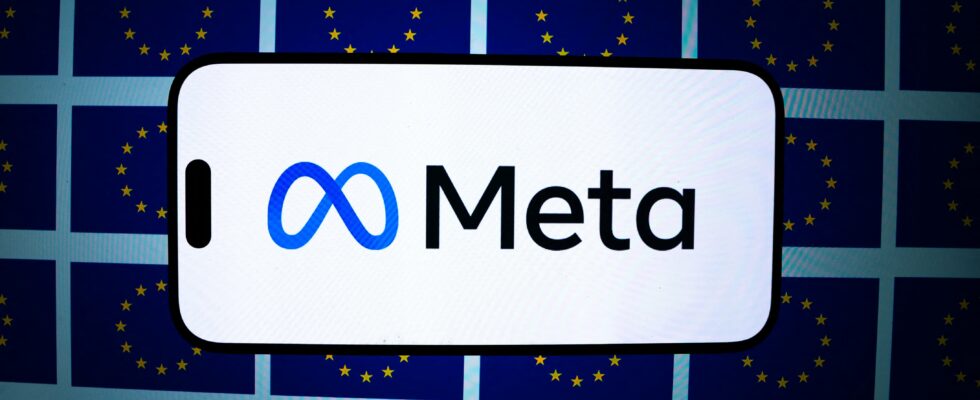The standoff continues between the European Union and the tech giants. In a press release sent on Wednesday, July 17, to online media Axios and consulted by AFP, the American multinational Meta (Facebook, Instagram, WhatsApp) announced that it was postponing indefinitely the launch in the European Union of a new version of its generative artificial intelligence (AI).
This new service concerns its generative AI Llama 3, called multimodal. Understand: a language model allowing to use and create on demand and by AI both text and images, videos or maps. Behind this announcement, Meta explains that it is “uncertain” that its service complies with EU regulations on the protection of personal data of European citizens. A strategy far from being unprecedented.
A 2016 text at the heart of the problem
Scheduled to be launched “in the coming months,” according to Meta, this “multimodal Llama model” aims to offer new features to users of all the group’s platforms. According to the media Axiosthe service aims to be integrated “into a wide range of products, including smartphones and its Ray-Ban Meta smart glasses”. But this upcoming launch will therefore not concern the EU: “due to the uncertain regulatory environment”, the Californian group repeated to AFP on Thursday.
Asked about the texts that pose a problem for him, Meta explains that this decision is mainly linked to the General Data Protection Regulation (GDPR). Voted in 2016, this text requires companies, under penalty of fines, to ask for the consent of European citizens when they request their personal data, to inform them of the use that will be made of it, and to allow them to delete the data collected.
This regulation therefore applies to Meta and its generative AI: like all major players in the sector, the Californian giant needs large quantities of data to train and develop the language models of artificial intelligence. Thus, when announcement at the end of May 2024 of the launch of an upcoming version of Llama 3 in Europe, Meta expressed its intention to train this generative AI on public data from European users. A use justified, according to the group, by the need for these services “to reflect the diverse cultures and languages of the European communities that will use them”, specifies this press release.
EU halts data collection
In this same announcement, and in accordance with the European GDPR, Meta thus undertakes to send notifications to Facebook and Instagram users in the EU to inform them of the use of their data. Early June 2024the web giant even claims to have “sent more than two billion notifications and emails” containing “a link to an objection form” to “oppose the use of their data”.
But the axe fell four days later: although Meta claimed to have warned European regulators of this collection early enough and to have adapted to their criticism, they ordered a temporary halt to the operation. “A few weeks later, dozens of questions were sent to him by the regulators responsible for the protection of personal data” in the European Union, specifies Axios.
It is this twist that prompts Meta to say it is “uncertain” about its compliance with European regulations. In its press release on Wednesday, the company also contrasts this uncertainty with the situation in the United Kingdom, where it believes it has received clear directives from the regulator, whose legislative framework is comparable to the GDPR.
New showdown between the EU and Gafam
The social media giant is thus adopting a strategy already chosen by other big names in tech in the face of European legislation on digital services, among the most protective in the world. At the end of June, Apple also postponed the launch of its generative AI system in the EU due to “regulatory uncertainties” linked to a text regulating competition in digital markets (DMA). For the same reasons, Meta had also given up on setting up its new social network Threads in the EU in July 2023.
However, the compliance of these digital services with European law is not impossible for web giants, including Meta. Six months after its initial launch, the social network Threads has finally been launched in the EU, after some modifications. In addition, the multinational plans to launch “soon […] a larger, text-only version of its Llama 3 model, […] which will be accessible to EU customers and businesses,” the American media outlet specifies Axios.
This new postponement of Meta is therefore part of a showdown between the web giants and the European Union, determined to limit their use of data from the Old Continent. Reappointed on Thursday for a second term at the head of the European Commission, Ursula von der Leyen promised to “strengthen and intensify the application” of European texts concerning the digital sector: “Technology giants must face the responsibilities associated with their enormous systemic power over our society and our economy.”
